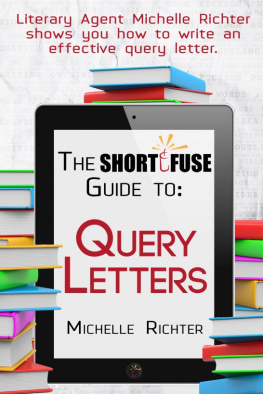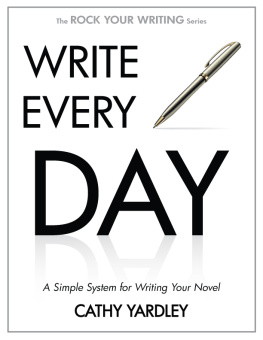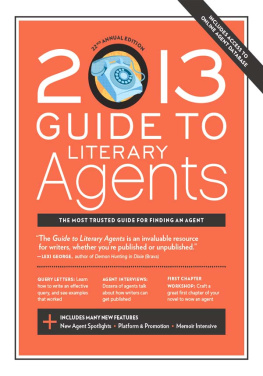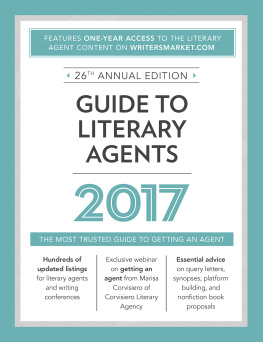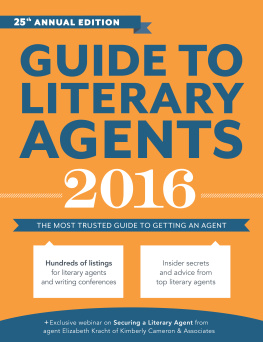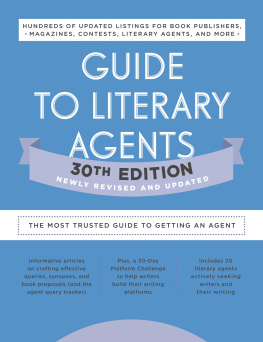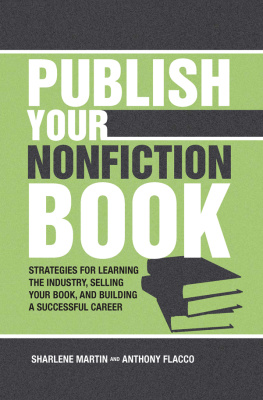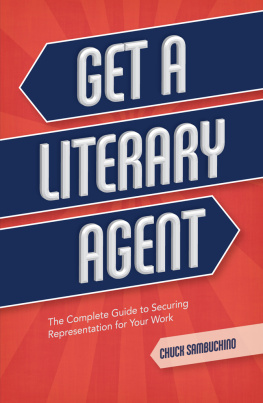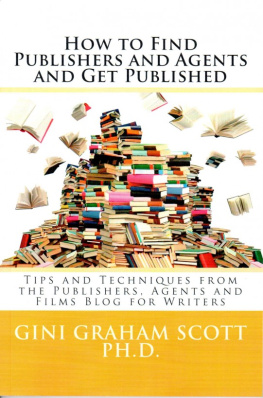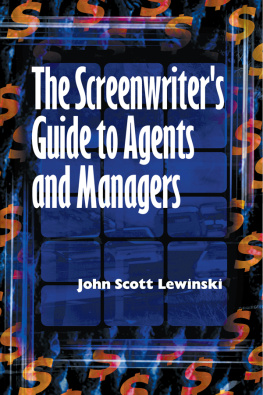THE SHORTFUSE GUIDE TO QUERY LETTERS
By Michelle E. Richter
The ShortFuse Guide to Query Letters
Published 2014 by Short FusePublishing, a Fuse Literary imprint.
http://fuseliterary.com
Smashwords Edition
Copyright 2014 Michelle E. Richter
All rights reserved.
No part of this book may bereproduced or transmitted in any form or by any means, electronicor mechanical, including photocopying, recording or by anyinformation storage and retrieval system, without the writtenpermission of the Publisher, except where permitted by law. Allinquiries should be addressed to .
Cover images Copyright 2014 Fotolia Stock Photos
Cover design by Laura Cummings
ISBN: 9781311297532
TABLEOF CONTENTS
Click the Fuse icon to return to the Table ofContents
WHYWRITE A QUERY?
Youve written a manuscript and revised and polishedit until it shines. How will you find an agent to be your championand help you get it published? By writing a killer query.
First, lets make sure were on the same page.Youve written a book. Pat yourself on the back! It should be abook, not a screenplay or a dramatic play; most literary agentsdont represent those. You have a novel or a memoir or a work ofnarrative nonfiction. Or perhaps a childrens book.
From an agents point of view, a query isinvaluable. The greatest potential source of clients, for a newagent in particular, is the slush pile. But the harsh reality isthat agents simply cant read everyones full manuscript. Werecontacted by literally thousands of hopeful writers everyyear. A query gives me a bit of a sneak preview. It helps meseparate the writers whose style and stories dont suit my needsand tastes from the ones who Im dying to have as my clients.
A great query letter is an enticement, somethingthat leaves me asking for moremore of your writing.
HOWDO YOU KNOW WHEN YOURE READY TO QUERY?
At conferences and on Twitter, we often get thequestion of How do I know that Im ready to submit? If yourewriting fiction, your manuscript should be completely written andrevisednot a work in progress. It should be the best you canpossibly make it, and you should have spent a significant amount oftime and effort getting it to that point.
If youre writing nonfiction, youve worked up animpressive proposal and a few solid sample chapters, perhaps afterreading The Nonfiction Book ProposalDemystified .
The exception to this rule is memoir. Though it istechnically nonfiction, it is also a work of narrative with astrong story arc and character development (just like a novel). Wehave to see the whole thing to make sure you dominate every plottwist and every device from start to finish. We also want to see amarketing proposal to prove that you have the platform necessary tobreak out in this highly competitive genre.
Once youve achieved this, youre ready to find yourpartner to help your book find its way out into the world.
PREPARATION
Should YouQuery Editors or Agents First?
Most literary agents would tell you that they wantfirst crackbefore editors. Querying editors firstor even at thesame time as agentscan tie a prospective agents hands a bit.
Maybe you sent to an editor and she makes you anoffer, and then you query agents. If an agent also loves your work,and offers representation, thats great. But youve also createdthe need to rush to read to meet the publishers deadline, and thatmay make an agent pass.
The agent may be overwhelmed with clients ordeadlines at the moment. She may think she could have found you abetter fit than that publishing house or editor. Or a higheradvance or better terms.
Though many publishers accept what are calledunsolicited submissions directly from authors, the Big 5 andmany of the larger independents only accept submissions fromagents. If you skip the agents and submit directly to editors,youre also skipping the larger, more commercial outlets for yourwork, and that may make your project no longer worth it in the eyesof a prospective agent.
Much depends too, on whether or not you accepted theoffer. If you query an editor, get an offer from them, and then goback to an agent youve queried, it may create a mad scramble thatdoesnt serve you or your work well.
Worse yet is if you query the wrong editor at apublisher or send in a manuscript that isnt quite as good as itcould be, and its rejected. The agent usually cant take your workback to that publisher once youve exhausted that option.
Bottom line, though you can pitch your work directlyto publishers, its usually best to leave that to theprofessionalsagents. And regardless of your choice, you should actwith conviction. When you waffle back and forth, things can getugly and opportunities can be spoiled.
ProTip: Think carefullyabout where you want your book to be published and howif all goesaccording to planbefore you query. Do you have the time, money,and discipline to market and distribute your own book if youself-publish? Are you just happy if its out in the world? Or doyou yearn for the traditional publishing experience? Every writerhas different needs. You dont want to withdraw a query from anagent because youve decided to self-publish, then resubmit, thenwithdraw again because youve had another change of heart (yes,this has happened.)
Whos YourReader?
Before you can write a query or know which agents totarget, you have to think about your audience. Is your book foradults or children? What age range? Is it fantasy? Romance? Cozymystery? Womens fiction? Science? Is there a book youd compareyours to? Or several books? Why? Would readers of a particularauthors work like yours too?
Maybe you need to do a little legwork to find thedefinition of urban fantasy or paranormal romance, or what haveyou. But once you know which shelf in the bookstore your book wouldfit on and who you think its readers will be, youll want to startresearching agents to figure out who youll reach out to.
Whom Should YouQuery?
Most writers are going to send out a lot of queries,and you probably will, but you shouldnt send them blindly. Doyour researchthis is a phrase youve heard and will continue tohear more than youd ever want to, Im surebecause it can make thedifference between an immediate form rejection and reaching anagent whos dying to read what youve written. There are a numberof resources out there to help you (some are listed ), though you should not rely onany one exclusively. These include books published once a year,blogs, websites, and social media. Keep in mind that these booksbecome outdated extremely quickly, and that some of theseaggregating websites are getting their information second-hand andmay contain inaccuracies. There is some great information there,but your best bet is always to double-check an agencys website forthe most up-to-date roster of agents and submission info.
First of all, youll want to be sure that the agentsyou query represent the kind of book youve written. If yourresource tells you that an agent is seeking womens fiction andmystery, for example, but youve written urban fantasy or horror orscience fiction, then that agent is probably not a good fit. Theysay they dont want paranormal? What is paranormal anyway? Theseare things you have to know before you submit, or else youre justsetting yourself up for rejection.
Second, are they open to submissions? Agents oftenclose to submissions for a period of time, so to submit while theyare closed would be a poor use of your time and energy. How wouldyou know? The agent may have announced it on Twitter and/or ontheir agency website.
I suggest that you visit the agents website beforequerying for a number of reasons. Check out their bio. Are theyseeking what youve written? Does their bio resonate with yousomehow? Agents often list their favorite books or books they haveworked on. They might list personal details or preferences thatwill provide a point of connection to your manuscript. An agentsbio is a great tool for you as a writer. If youre not seeinganything there that you click with or that speaks to you, you maywant to move on. Remember, you dont just want an agent; you wantthe best agent for your work.
Next page
